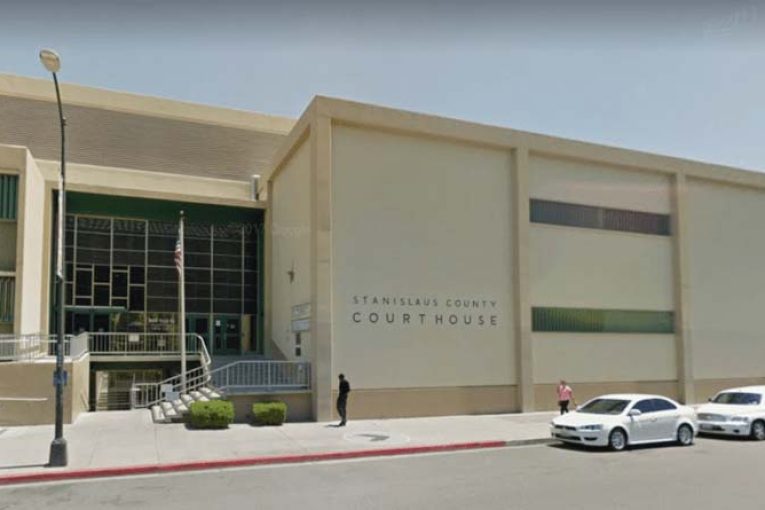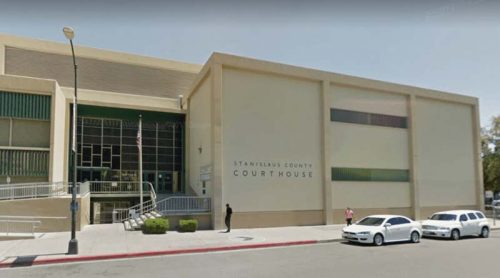

By Holly Werris
MODESTO, CA – A judge here in Stanislaus County Superior Court this week ruled the Miranda Rights of a man were not violated, choosing not to reduce felony charges to misdemeanor counts, and sending the felony case to trial—acknowledging the accused return the stolen items.
The preliminary hearing began with Alternate Defender Beth Lee noting the prosecution had not brought a plea deal to the table.
Judge Carrie Stephens then noted, given the accused did not have an extensive criminal record or any history of violent crime, it seemed “kind of silly” not to resolve the case early.
But Deputy District Attorney Thane Nored called witness Deputy Corbin Alanis of the Stanislaus County Sheriff’s Office, who established that he obtained video footage of the accused’s vehicle, and then called the accused and asked to meet with him.
The accused, testified the deputy, agreed to meet because he said he was afraid of being arrested.
The accused and Alanis met at a police station, during which Alanis maintained the defendant was not detained and came of his own free will; Alanis elaborated that he never said the accused was not free to leave, never restrained him, and was not performing a traffic stop.
Defense Attorney Lee then questioned Alanis and established that he, at one point, had received the accused’s ID, had his body camera on, and that, on the telephone call, Alanis had told the accused that if he did not appear, he could issue an arrest warrant.
“So he wasn’t entirely coming of his free will,” Defense Attorney Lee said.
Alanis also testified the accused was considered a person of interest in the investigation at that point and that he did not give the accused his Miranda Rights because he was not detained.
But Lee argued that, because the accused had given Alanis his ID, and was considered a person of interest, and was not read his Miranda Rights and was told that if he did not appear, he could be arrested, the evidence given from this meeting should not be admissible in court.
DDA Nored argued the accused was not officially detained, arrived voluntarily, and that there was no show of force from Alanis.
Stephens ruled in favor of the prosecution, citing that the interaction took place outside the police station, and the accused arrived voluntarily.
Lee also argued the felony theft charges should be reduced to misdemeanors because the accused returned all stolen goods.
“My client cooperated with law enforcement, showed remorse, and was willing to take responsibility for the items,” the defense attorney added, claiming that these were “acts of opportunity.”
Stephens denied the motion because of the accused’s criminal history, which included recent theft-related offenses, and because the value of the stolen, albeit returned, property, exceeded $2,000.
“If it had been one offense, of course I would think differently,” Stephens said, ruling there was sufficient evidence to proceed to trial and set a new hearing on Aug. 2.